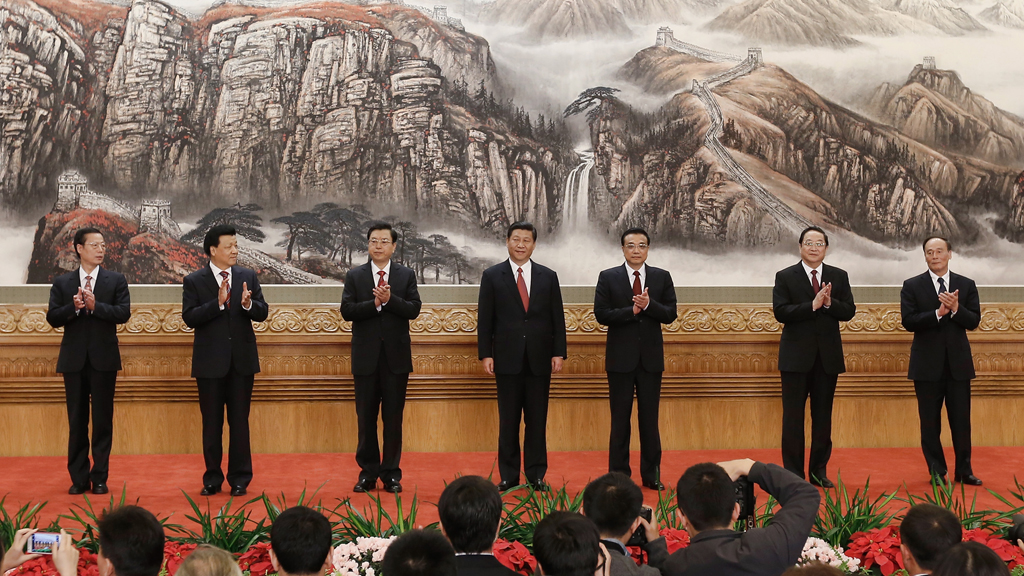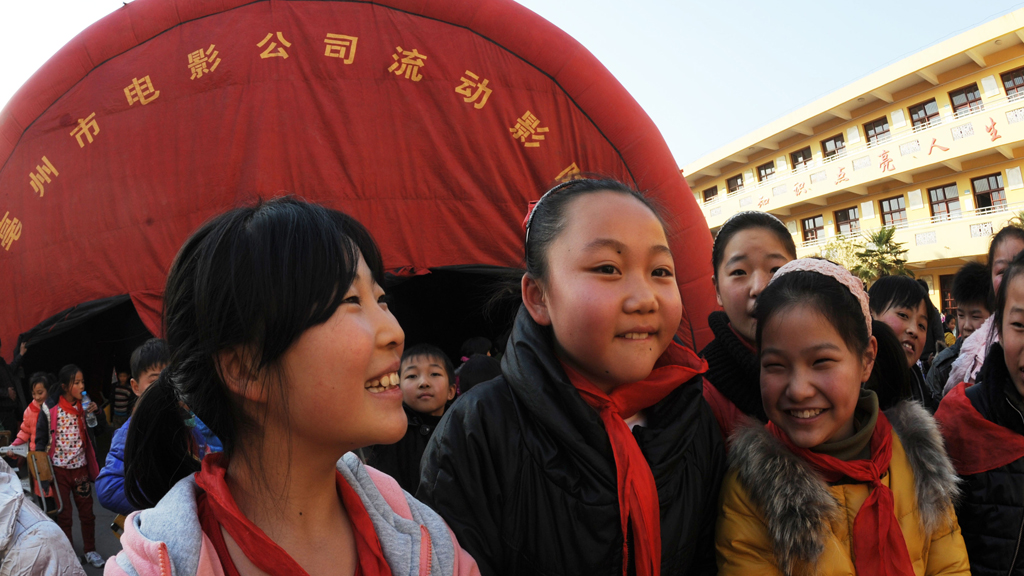What are the key issues facing China’s new leader?
China’s new ruler Xi Jinping and his standing committee will preside over 1.3 billion people and the second largest economy in the world. What will be the main issues to define their leadership?

Corruption
China has had a complicated relationship with wealth and money. While market economics ushered in economic growth after former leader Deng Xiaoping’s pronouncement that “to get rich is glorious”, Communist party officials have tried to distance themselves from accusations of their own personal wealth.
“You should not go into politics if you wish to become wealthy,” said the incoming Xi Jinping in August 2000, in the only interview he is known to have given. “In that case you will inevitably become a corrupt and filthy official.”
However after a string of revelations about the fortunes of senior officials earlier this year and people witnessing local officials becoming obviously more wealthy, the ruling officials will be under fierce scrutiny by the general public who will not be happy to see leaders getting richer if their own situation is not improving.
The average Chinese are being indoctrinated to believe that tomorrow will be a better day. Professor Steve Tsang
As lawmakers are seen to take advantage of their position, this is beginning to impact how the public hold them to account. And in recent years, the Chinese have started to rebel against the strict laws in society, seeing their leaders doing the same and benefiting from it, says Channel 4 News producer Bessie Du.
“The ‘happiness index’ for many ordinary Chinese has dropped to a record low in the last decade,” she writes. “Many feel that the country has descended into lawlessness. No-one obeys the rules anymore because the authorities no longer have credibility.”
Read more: Why affluence in China has brought society to a standstill
Economy
And that brings us on to another major issue facing China’s new leaders. After growing at a startling rate for years, China’s economy is beginning to slow down and economists say it will need significant restructuring to survive. At the moment, China is dependent on exports – the demand for which is slowing down, due to recessions elsewhere – and inward investment, which is funded by central banks and is therefore unsustainable.
“The government needs to rebalance the economy to become not so dependent on these two drivers, and instead, to become dependent on domestic consumptions, or consumers, and domestic services generation,” Steve Tsang, professor of contemporary Chinese studies at Nottingham University, told Channel 4 News.
The Chinese government appears to agree in principle with the idea of opening up state dominion over the market, and allow small and medium-sized companies to thrive. But whether they will do it is yet to be seen.

Demography
After years of draconian measures such as the one-child policy attempting to reduce China’s population, it now seems the country is facing the opposite problem – too low a birth rate. The last census in 2011 showed that the number of people under the age of 14 declined from 23 per cent in 2000 to 17 per cent.
China’s working population is expected to shrink over the next few years, and this group will bear the heavy burden of a growing older population, who now represent 13.3 per cent of the population. And while pensions are currently available for employees of a state owned enterprise, this will be unsustainable for much longer.
There is also the problem of tens of millions of young men being unable to find a wife, as they outnumber women in the population – a phenomenon that is likely to present significant problems in the future, and is unlikely to be remedied any time soon. Among newborn babies in 2010, there were more than 118 boys for every 100 girls.
A tale of two Chinas
The pace of economic growth and expansion in China has been centred around the cities, where the property boom has been immense. But it is only made possible because tens of millions of people leave their homes in the country to work there. They work long hours, sleep in dormitories and go home once a year during the Chinese New Year holiday.
“The expansion of cities will continue, because that growth of urban living is part of the capital infrastructure development project and regional areas have to say they are delivering that,” Professor Tsang told Channel 4 News.
Chinese ‘netizens’ are probably the most populous and active in the world, expressing themselves on internet services such as Weibo. Blogger Anna Chen
But while the cities expand, Chinese people are unable to move there from the countryside. The Hukou, or household registration system, is allocated according to where you are born and is linked to individual’s local access to health, education, public services. It can only be changed if you have connections, or marry into urban family.
This likely to be another source of discontent, says Professor Tsang, as people yearn for a better standard of living that they see in cities. “The average Chinese are being indoctrinated to believe that tomorrow will be a better day,” he says, and for those living the countryside, that means moving to the city: “You don’t want to live like a Chinese peasant. Think of an English peasant 300 years ago .”
Read more from International Editor Lindsey Hilsum: Profiting from China’s property boom

Freedom of speech
What is encouraging for China’s public, is that the internet has provided them with a forum to debate the issues their country faces and to vent frustrations with the way it is run, in a way that was not possible before.
“Freedom of speech is a lot healthier than you probably realise, the government’s attempts to close it down notwithstanding,” says Anna Chen, Orwell Prize-winning blogger on Chinese culture. “Chinese ‘netizens’ are probably the most populous and active in the world, expressing themselves on internet services such as Weibo.”
The digital generation have also come up with creative way of getting around the government’s attempted blocks, she adds: “Often with hilarious results: such as the Grass Mud Horse and River Crab episodes where the levels of meaning in Chinese characters allow the dissenting public to say much more than first meets the eye and lampoon the authorities over their corruption.
“Ai Weiwei’s imaginative sending-up of his tormentors has proven popular.”
There has also been a rise in public protest about conditions. Professor Tsang points out that for the last five or six years, the annual figures showing the number of strikes or protest have not been made available – presumably because this has taken a steep rise.
Environment
China’s vast economic growth has been accompanied by an escalation of carbon emissions and the vast country has now surpassed the United States to become the world’s largest emitter of carbon dioxide. It is reliant on coal for its main source of energy.
As people have more money, there are four times as many cars on the roads as there was in 2003 and the huge expansion of cities has also generated huge pollution.
The government is attempting to tackle these issues, and has put money into wind farm capacity. But with millions of people of people still living in poverty without access to fresh water, tackling infrastructure to make it more sustainable in this vast country will take a lot of work.
-
Latest news
-
Laughing Boy: New play tells the tragic tale of Connor Sparrowhawk5m

-
Sewage warning system allows some of worst test results to be left off rating system, analysis shows3m

-
Post Office inquiry: Former CEO didn’t like word “bugs” to refer to faulty IT system4m

-
Israeli soldier speaks out on war in Gaza12m

-
PM’s defence spending boost should be ‘celebrated’, says former Armed Forces Minister4m

-




